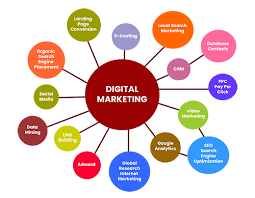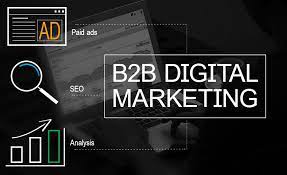The Power of an Effective Online Content Marketing Strategy
In today’s digital age, where consumers are constantly bombarded with information, having a well-defined online content marketing strategy is essential for businesses to stand out and connect with their target audience. A successful content strategy not only helps in building brand awareness but also drives engagement, leads, and conversions.
Understanding Your Audience
One of the key pillars of a robust content marketing strategy is understanding your target audience. By creating buyer personas and conducting market research, you can gain valuable insights into the preferences, needs, and challenges of your potential customers. This knowledge allows you to tailor your content to resonate with your audience effectively.
Creating Valuable Content
Content is king in the digital realm. Whether it’s blog posts, videos, infographics, or social media posts, creating valuable and relevant content is crucial for attracting and retaining your audience. Your content should provide solutions to their problems, answer their questions, or entertain them while aligning with your brand voice and values.
Optimising for Search Engines
Search engine optimisation (SEO) plays a vital role in ensuring that your content reaches a wider audience. By incorporating relevant keywords, meta tags, and high-quality backlinks into your content, you can improve its visibility on search engine results pages (SERPs) and drive organic traffic to your website.
Engaging on Social Media
Social media platforms offer a powerful channel for distributing your content and engaging with your audience. By sharing your articles, videos, or infographics on platforms like Facebook, Twitter, LinkedIn, and Instagram, you can increase brand awareness, foster relationships with followers, and encourage social sharing.
Analysing Performance Metrics
Measuring the performance of your online content marketing efforts is essential for refining your strategy and achieving better results. By tracking metrics such as website traffic, conversion rates, click-through rates (CTR), bounce rates, and social media engagement levels, you can identify what’s working well and what needs improvement.
Conclusion
An effective online content marketing strategy is a dynamic process that requires continuous refinement based on data-driven insights and changing consumer behaviours. By understanding your audience, creating valuable content,
optimizing for search engines,
engaging on social media,
analysing performance metrics,
businesses can enhance their online presence,
build credibility,
drive traffic,
generate leads,
increase conversions
ultimately achieve their marketing goals.
Understanding Online Content Marketing Strategies: Key Concepts and Frameworks
- What are content marketing strategies?
- What is online content strategy?
- What are the three pillars of online content marketing?
- What are the 4 types of content strategy?
- What are the 5 P’s of content marketing?
- What are the 7 steps of content marketing?
What are content marketing strategies?
Content marketing strategies encompass the deliberate planning and execution of initiatives aimed at creating and distributing valuable, relevant, and consistent content to attract and retain a clearly defined audience. These strategies are designed to drive profitable customer action by providing information that addresses the audience’s needs and interests while aligning with the goals of the business. Effective content marketing strategies involve identifying target audiences, developing engaging content, leveraging various distribution channels, and measuring performance to continuously refine and improve outcomes. By crafting compelling narratives that resonate with consumers, businesses can establish credibility, build relationships, and ultimately drive meaningful engagement and conversions.
What is online content strategy?
Online content strategy refers to the comprehensive plan and approach that businesses or individuals adopt to create, publish, distribute, and manage content online. It involves identifying target audiences, defining goals, selecting appropriate channels, creating engaging and valuable content, and measuring performance to achieve desired outcomes. A well-crafted online content strategy not only helps in establishing a brand’s online presence but also in building credibility, driving traffic, generating leads, and ultimately converting prospects into loyal customers. By strategically aligning content with business objectives and audience needs, organisations can effectively communicate their message and stand out in the crowded digital landscape.
What are the three pillars of online content marketing?
When it comes to online content marketing strategy, the three pillars that form the foundation of a successful approach are understanding your audience, creating valuable content, and optimising for search engines. These pillars work together synergistically to ensure that your content resonates with your target audience, provides them with relevant and engaging information, and increases visibility through effective SEO practices. By focusing on these key elements, businesses can enhance their online presence, attract and retain customers, and ultimately drive conversions.
What are the 4 types of content strategy?
When it comes to online content marketing strategy, understanding the four types of content strategy is crucial for creating a comprehensive and effective approach. The four main types include: 1) Content Creation Strategy, focusing on producing high-quality and engaging content tailored to the target audience; 2) Content Distribution Strategy, determining how and where to share content to reach the intended audience effectively; 3) Content Governance Strategy, establishing guidelines and processes for content creation, publication, and maintenance; and 4) Content Performance Strategy, analysing key metrics to measure the success of content efforts and making data-driven decisions for future enhancements. By incorporating these four types of content strategy into a cohesive plan, businesses can maximise their online presence and engage with their audience in a meaningful way.
What are the 5 P’s of content marketing?
The 5 P’s of content marketing are essential elements that form the foundation of a successful online content strategy. These P’s include Product (creating valuable and relevant content), Placement (distributing content across various channels), Promotion (engaging with the target audience through social media and other platforms), Price (determining the cost-effectiveness and ROI of content marketing efforts), and finally, Performance (measuring and analysing key metrics to evaluate the effectiveness of the strategy). By incorporating these 5 P’s into their content marketing approach, businesses can enhance brand visibility, engage with their audience effectively, and drive meaningful results in today’s competitive digital landscape.
What are the 7 steps of content marketing?
When it comes to online content marketing strategy, understanding the fundamental steps can pave the way for a successful campaign. The 7 key steps of content marketing involve defining your goals and target audience, conducting research to understand market trends and consumer preferences, creating valuable and engaging content that resonates with your audience, distributing this content through various channels to reach a wider audience, optimizing your content for search engines to improve visibility, measuring performance metrics to track success and make informed decisions, and finally, refining your strategy based on data-driven insights for continuous improvement. By following these steps diligently, businesses can effectively leverage content marketing to enhance brand awareness, engage with their audience, and drive meaningful results.



